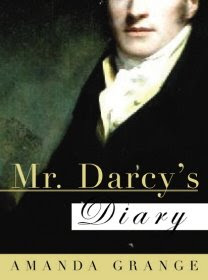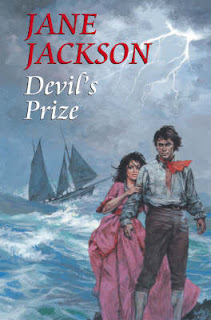While Elena’s away, the members of the UK Historical Romance Blog bravely offered to cross the Atlantic and take over on a Wednesday–in fact, there are so many of them, and they’re such a talkative lot, they’ll be visiting again on March 4. So, a warm welcome ladies, and take it away…
Hi! It’s great to be here on the Risky Regencies blog. We’re a group of British Regency writers and we got together a few years ago to chat about our favourite genre. We run the Historical Romance UK blog so please drop by and visit us! And if you sign up for our monthly email newsletter, you can enter more competitions to win books and goodies. Just send a blank e-mail here and we’ll do the rest!
Ever since the Riskies invited us to blog we’ve been thinking about the differences between Regencies in the US and in the motherland, which largely depend on which publisher we’re with. Here are our thoughts, together with some information about us and our books, and of course there are plenty of competitions for you to enter, too! What better for February than some Regencies to win?! Unless otherwise stated, the closing date for our competitions on this Risky blog is 28th February.
 Amanda Grange: I write a lot of Jane Austen inspired novels – Mr Darcy’s Diary, Mr Knightley’s Diary, Captain Wentworth’s Diary, Edmund Bertram’s Diary and Colonel Brandon’s Diary – which retell Jane Austen’s stories from the heroes’ point of view. This kind of book is very popular on both sides of the Atlantic, but the UK books tend to stay closer to Austen in style and tone. A lot of the US books take Jane Austen’s characters into new territory, exploring their sex lives, and giving them more dramatic storylines, whereas my books aim to be as close to Austen as I can get them. I particularly liked writing the backstories for Wentworth and Brandon, whereas the US books tend to focus more on continuations.
Amanda Grange: I write a lot of Jane Austen inspired novels – Mr Darcy’s Diary, Mr Knightley’s Diary, Captain Wentworth’s Diary, Edmund Bertram’s Diary and Colonel Brandon’s Diary – which retell Jane Austen’s stories from the heroes’ point of view. This kind of book is very popular on both sides of the Atlantic, but the UK books tend to stay closer to Austen in style and tone. A lot of the US books take Jane Austen’s characters into new territory, exploring their sex lives, and giving them more dramatic storylines, whereas my books aim to be as close to Austen as I can get them. I particularly liked writing the backstories for Wentworth and Brandon, whereas the US books tend to focus more on continuations.
Visit Amanda’s website to enter a competition to win a hardback copy of Colonel Brandon’s Diary and a trade paperback of Lord Deverill’s Secret. Just email Amanda with the answer to these questions, which can be found on her site: What is the name of the heroine in Lord Deverill’s Secret? And what is the name of Colonel Brandon’s first love?
Jane Odiwe: It’s lovely to be invited over to the Risky Regencies Blog!I’m an English author with an American publisher, Sourcebooks Inc. and find my inspiration from the wonderful novels of Jane Austen. Lydia Bennet’s Story, a sequel to Pride and Prejudice, appealed to me because I saw a challenge in developing a secondary character. I like the idea of telling the stories that Jane Austen didn’t relate and it was during a trip to Brighton that I started to wonder how Lydia and George Wickham came together before eloping. As I walked along the seafront I could imagine the balls and the promenades against the backdrop of fashion, scandal and frivolous living at the Marine Pavilion. I wanted to write a comic novel,and I thought with Lydia there would be plenty of opportunity for laughs.
Willoughby’s Return is my next sequel. I wanted to know how Marianne would fare in her marriage to the much older Colonel Brandon and how she might react if a former love, Mr Willoughby, returned to the neighbourhood. Margaret, another secondary character from Sense and Sensibility, is eighteen in this novel and I wanted to give her more of a heroine’s role,intertwining her story with that of her sister’s. Some of the story takes place in London with several of Austen’s characters like Mrs Jennings and Lucy Steele reappearing. I love to write scenes with these wonderfully humorous characters.
Having an American publisher means they are very open to scenes which Austen might not have written herself; and there are a range of sequels that Sourcebooks produce from those with no sex to the very steamy! My books have mild references to love-making and contain double entendres, but remain true to the Austen spirit. I am writing for a British and American audience, some of whom are Austen experts and some not, but I like to be meticulous in research and detail, reflecting the themes that Austen wrote about herself.
 Monica Fairview: Yes, I think the expectations of Jane Austen fans in the US and the UK are quite different. I recently read a quote from Virginia Woolf which I loved. She says “anyone who has the temerity to write about Jane Austen is aware… that there are twenty-five elderly gentlemen living in the neighbourhood of London who resent any slight upon her genius as if it were an insult to the chastity of their aunts.”
Monica Fairview: Yes, I think the expectations of Jane Austen fans in the US and the UK are quite different. I recently read a quote from Virginia Woolf which I loved. She says “anyone who has the temerity to write about Jane Austen is aware… that there are twenty-five elderly gentlemen living in the neighbourhood of London who resent any slight upon her genius as if it were an insult to the chastity of their aunts.”
Of course, no one thinks that way today, but a hint of Jane Austen as untouchable still lingers in the UK. I think US Austen fans demand a lot, too, but they are willing to tolerate more creative licence.
My Austen-inspired novel, The Other Mr. Darcy, is coming out in June 2009 in the UK, and will be published later in the US by Sourcebooks. The Other Mr. Darcy deals with cross-cultural issues. It features an American main character along with the woman everyone loves to hate in Pride and Prejudice, Miss Caroline Bingley. My hero, Robert Darcy, is a Boston Brahmin, (though the term wasn’t used until after the Regency) so he has his own ideas of what constitutes a “gentleman.” Obviously his ideas are going to clash with Miss Bingley’s. I had great fun writing the novel, which I hope is in the spirit of Jane Austen, if not in the letter.
 Louise Allen: my last book was the final title in my six part Those Scandalous Ravenhursts series, out along with numbers four and five this year. I thought I had got to grips with writing a series, but I soon discovered I had a lot to learn when I embarked on my current project – writing two stories as part of a, yet untitled, eight-part Regency continuity for HMB. My fellow authors for that project are Christine Merrill, Gayle Wilson and Julia Justiss from the States and Margaret McPhee and Annie Burroughs from the UK.
Louise Allen: my last book was the final title in my six part Those Scandalous Ravenhursts series, out along with numbers four and five this year. I thought I had got to grips with writing a series, but I soon discovered I had a lot to learn when I embarked on my current project – writing two stories as part of a, yet untitled, eight-part Regency continuity for HMB. My fellow authors for that project are Christine Merrill, Gayle Wilson and Julia Justiss from the States and Margaret McPhee and Annie Burroughs from the UK.
Thank goodness for email, is all I can say, I don’t know how we could have created all our intertwining plots and characters without it. I’m lucky enough to be close enough to London to go and check out oak trees in Hyde Park (for kissing behind) or whether a certain square is just right for someone’s hero’s town house while the others contribute fascinating research on Romany life and curses, Cornish smugglers, the American navy or keep our tangled stories straight.
It doesn’t matter which country you’re in, I’ve decided – historical romance writers are all sisters under the skin. My aim is to create heroes and heroines who will reach out to a 21st century reader while staying true to their Regency world: find out more at my website.
To win signed copies of the first 3 Ravenhurst titles e-mail me and tell me why you love Regencies to be entered into my prize draw. Passion… from the past into the present.
Amanda: I write other types of Regency as well as Austen inspired novels. Books like Lord Deverill’s Secret and Harstairs House are closer to Georgette Heyer in feel, with an adventure as well as a romance.
Lord Deverill’s Secret takes place in Brighton, with visits to the races and the Pavilion, and Harstairs House is set on the Cornish coast. I think the closest equivalent in the US would be the trad Regency, although US trads don’t seem to have as much adventure as the UK trads.

Jane Jackson: My books have never been traditional regencies – mainly because my stories are set in Cornwall – or at least begin there before travelling to countries served by the Packet Ships, and few young ladies would ever have managed to get to London for the Season. That said, Truro and Penzance had their own Assembly Rooms, their own circulating libraries and gentlemen’s clubs.

We had our own mini-Season here in Cornwall, where the daughters of the gentry would attend parties, balls and suppers with the express purpose of meeting eligible gentlemen. It was simply done on a smaller scale. My stories are adventure romance. We have such a rich and dramatic heritage here in Cornwall that I will run out of time before I run out of inspiration.
Visit Jane’s website to enter a competition to win a copy of either of my most recent books, Devil’s Prize or Bonded Heart (you choose). Just answer this question: What is the name of the village featured in both stories? Send your answer to me via the Get in Touch link on my website. Good Luck!
Kate Tremayne: Like Jane Jackson’s the Loveday series of novels are set in Cornwall where the family have their estate at Trevowan and a shipyard on an inlet of the River Fowey. Again they are not standard regencies as I am now writing book ten in the series that covers the lives, romances, conflicts, rivalry and adventures of four sets of Loveday cousins. The series has been reviewed as being a sweeping family drama in the tradition of Poldark with the mystery and suspense of Daphne du Maurier and an emotional intensity that transcends time. The novels weave through adventures and drama involving the French Revolution to the Napoleonic wars, smuggling, highway robbery, the criminal underworld and theatrical world of London, transportation to Botany Bay and a visit to Virginia involving a scandal involving their American kin.
Adam Loveday, the first book in the series, is rich in drama and passion, filled with memorable and feisty characters, with the atmosphere and flavour of Georgian England. The childhood rivalry between Adam and his elder twin St John continues to govern their fated passions and chequered fortunes. St John has become a dissolute wastrel but Adam, with a talent for ship design and a thirst for adventure, has fierce family pride in the family estate and yard. He will never accept St John as the rightful heir. St John is equally determined that Adam will never get his heart’s desire: the estate, the shipyard – and Meriel Sawle, the seductive daughter of the local innkeeper. whose violent family are infamous in the smuggling trade.
I can’t think of an American equivalent but if any of you know of something similar in the US, please let me know!
Visit Kate’s website to enter a competition to win a copy of Adam Loveday. Just email Kate with the answer to this question, which can be found on her site: What is the name of the Loveday estate in Cornwall?
Kate Allan: After writing Perfidy and Perfection, a Jane Austen inspired Regency rom com, I have been interested to see a handful of Regency rom coms appearing in the US and hope this is a trend that will continue. My other Regencies are all romantic adventures. I like setting my stories in different parts of the UK and making sure the local detail is correct as possible. One difference between Regencies published in the UK and those in the US is the level of historical realism that is required by publishers here. My next novel, which should be out at the end of this year, is set in Cornwall and the hero is a ex-smuggler back for revenge of those who betrayed him. It is a little darker in tone than my previous books. It is grey and raining throughout the whole novel and the sun only comes out at the very end.
Monica: Like Kate, I’m very fond of Regency romantic comedy. In my opinion, a comic touch is important to Regency. If you look at both Jane Austen and Georgette Heyer, who laid the foundation for Regency romance, comedy is at the heart of both. I think of my novel An Improper Suitor as a comedy of manners, though it also has an element of suspense and adventure to it. Generally in the UK there is still a hearty tradition of adventure attached to Regency romances, following Heyer, whereas in the US there’s been a drift towards longer historicals that are more spicy and more relationship-focused.
Well, that’s all from us for now. We’ll be back again in March, when the rest of Historical Romance UK will be talking about their take on the similarities and differences between UK and US Regencies.
If you’d like to buy any of the UK published books and can’t find them in the US, The Book Depository delivers them free worldwide.















